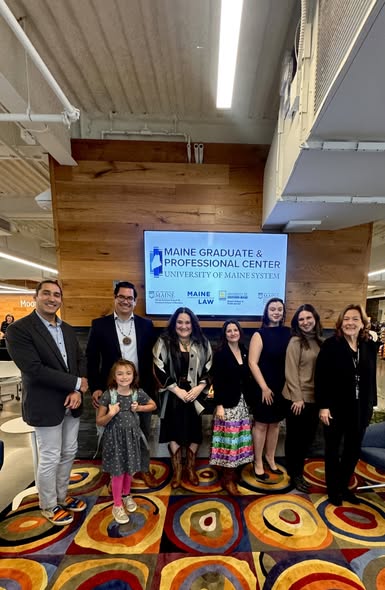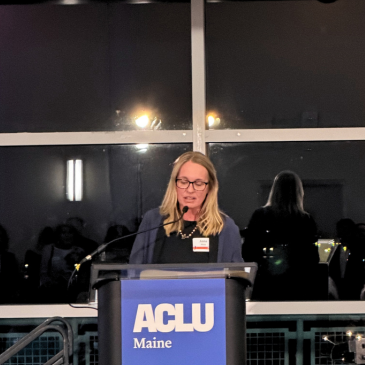
PRESS RELEASE
PORTLAND, ME – Authors of the recently published report, Lives in Limbo: How the Boston Asylum Office Fails Asylum Seekers, commend Senators Elizabeth Warren and Edward Markey and Representatives Jim McGovern, Jake Auchincloss, Chellie Pingree, Lori Trahan, Ayanna Pressley, and Katherine Clark for calling on the Department of Homeland Security Inspector General to immediately investigate bias and the resulting low asylum grant rates in the Boston Asylum Office.
The report by the University of Maine School of Law’s Refugee and Human Rights Clinic (RHRC), Immigrant Legal Advocacy Project (ILAP), ACLU of Maine, and Dr. Basileus Zeno, Karl Loewenstein Fellow and Political Science Lecturer at Amherst College, analyzed extensive documents produced by USCIS in a Freedom of Information Act (FOIA) request and more than one hundred interviews with asylees, asylum seekers, immigration attorneys, asylum officers, and supervisory asylum officers. The results were clear and disturbing: the Boston Asylum Office’s asylum grant rate is half the national average due to racial and language bias, burnout, and other due process-eroding pressures.
“Our study proved that what’s happening in the Boston Asylum Office is resulting in erroneous denials because immigration courts are later granting asylum in these cases,” said Anna Welch, clinical professor and founding director of Maine Law’s RHRC. “What this translates to for a human being who has been forced to flee for their life is additional years in legal limbo in the immigration court system, re-traumatization, needless family separation, and other devastating costs.”
Report co-author Dr. Basileus Zeno, Karl Loewenstein Fellow and Political Science Lecturer at Amherst College spoke to those costs from his direct experience with the Boston Asylum Office:
“When I fled Syria with my wife and applied for asylum in 2013, I sought out a new life to leave behind the violence and fear of persecution under the Assad regime, which killed and imprisoned some of my closest friends. I have experienced a different type of violence under the U.S. asylum system, specifically in the Boston Asylum Office. This violence takes the form of adversarial interrogations, rejection or omission of evidence submitted to support my case, and constant denial of my life during multiple asylum interviews. I was treated either as a terrorist or a fraud. The unbearable treatment from the U.S. asylum system sought to take away my humanity and ability to make a life for myself and my family.”
“What’s happening in the Boston Asylum Office is an affront to the values that are supposed to underpin our laws,” said Anahita Sotoohi, a lawyer at the ACLU of Maine. “International and federal laws require the U.S. government to provide asylum seekers with due process, which means they should get a fair shot at proving their case. Instead of due process, they’re being met with disparate treatment on account of their national origin, race, and language in the Boston Asylum Office.”
The Congressional request for investigation comes right as the Biden administration is implementing a new rule aimed at improving “promptness, efficiency, and fairness” in the asylum system. “If the administration wants to truly and meaningfully address issues in our asylum system that are impacting ‘promptness, efficiency, and fairness,’ it has to look at the foundation the system is built on,” said Sue Roche, Executive Director at the Immigrant Legal Advocacy Project. “A sufficient number of well-trained asylum officers applying the same standards without racial or language bias is an irrefutable requirement to a just asylum system and there are clear steps the administration can and must take to achieve that.”
In addition to immediate investigation and Congressional oversight, the report calls for rigorous hiring standards and increased accountability for asylum officers; continual high-quality training and support to decrease compassion fatigue and root out implicit bias and racism, and clear, transparent timelines to adjudicate cases without compromising due process or access to counsel.








